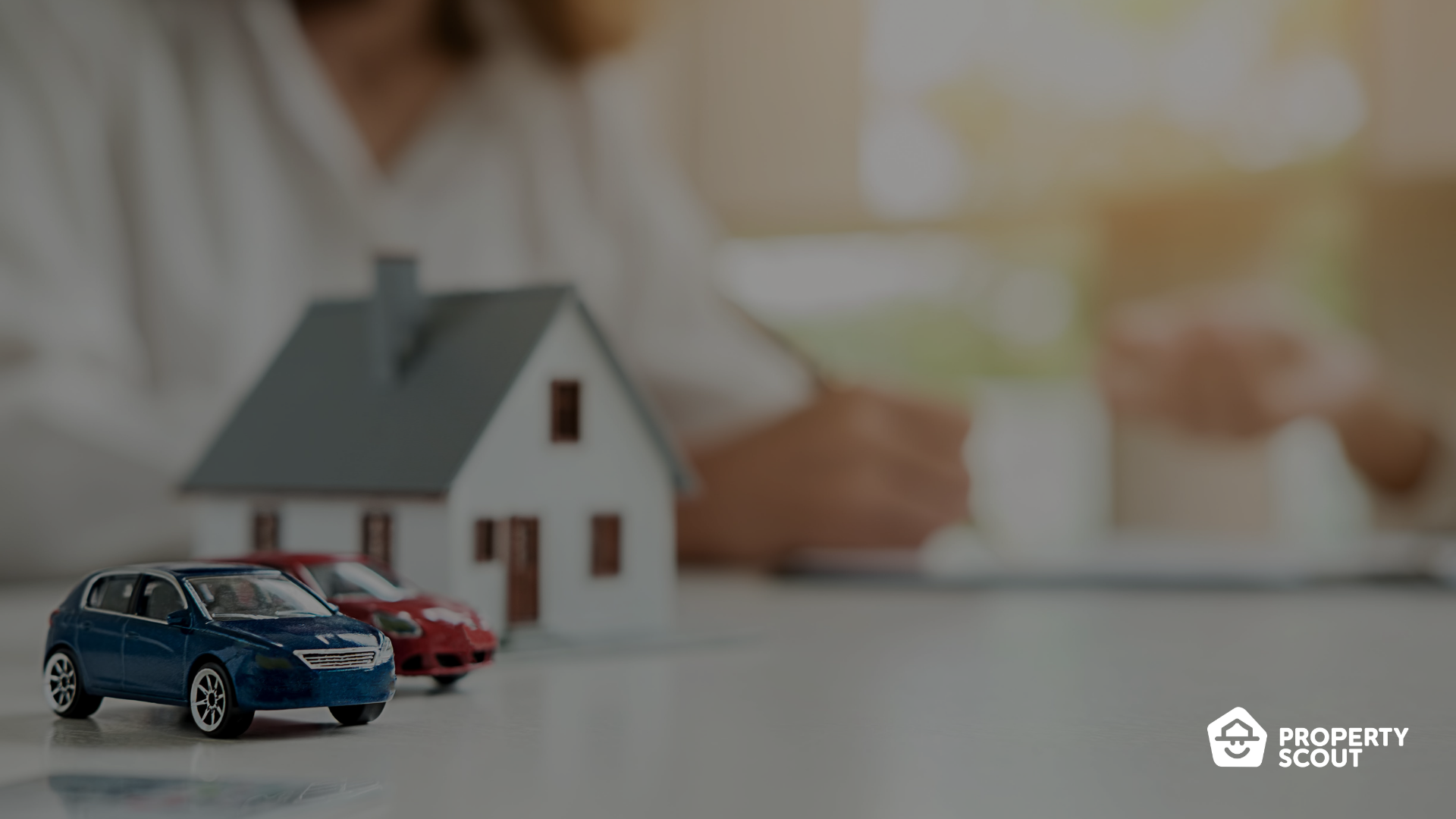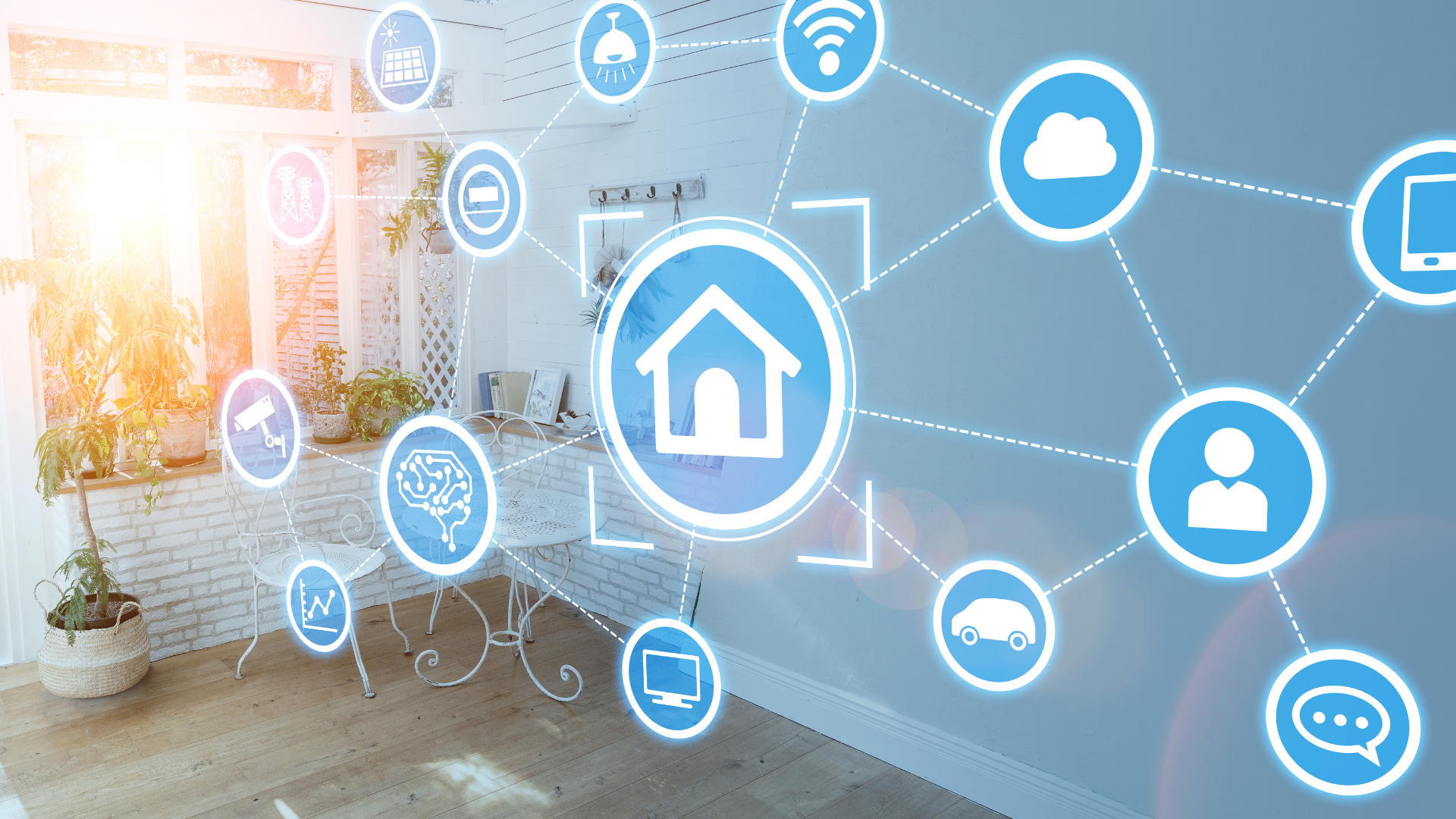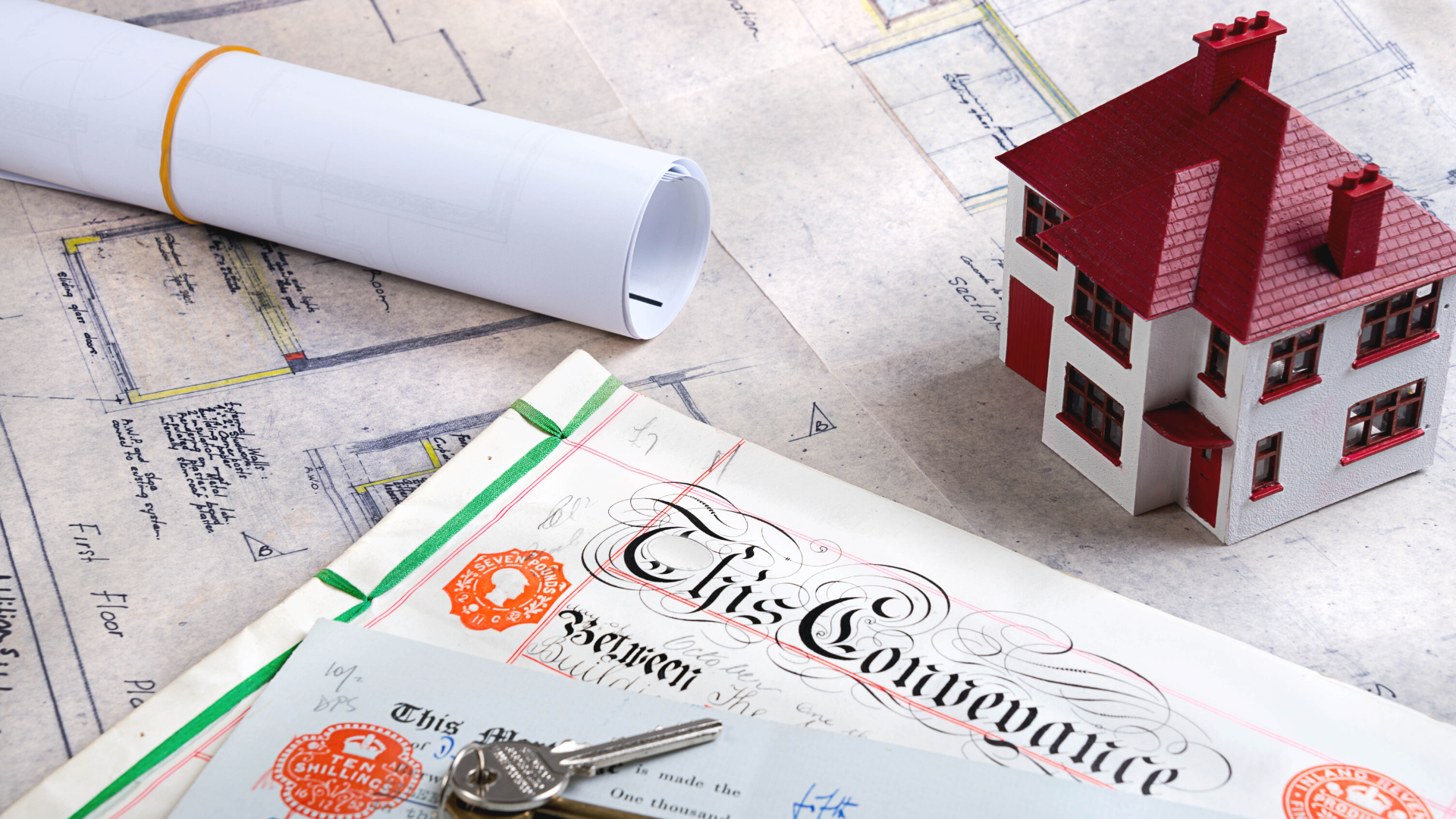In Short
Advice
For many individuals embarking on their careers and building up savings, the decision of whether to buy a home or a car first becomes a universal dilemma. Both are crucial investments that enhance convenience and comfort in life. However, choosing between the two can be a daunting task. In this article, PropertyScout will delve into the principles and factors to consider when making this pivotal choice. Let's explore together!
Why not Both?
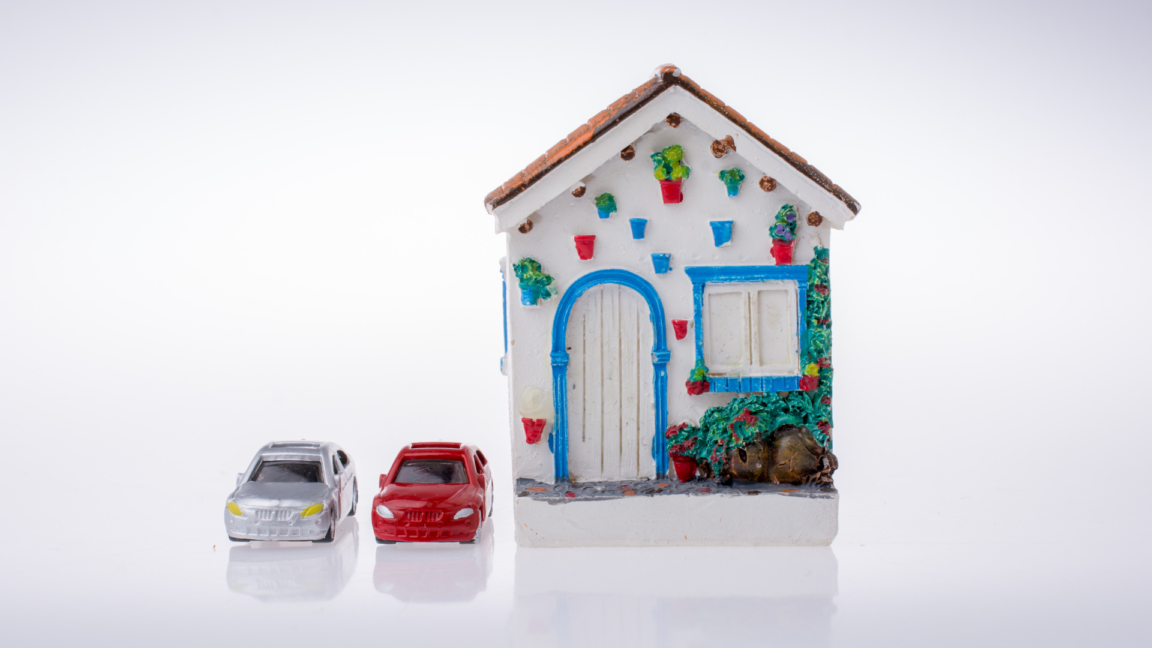
Simultaneously buying both a home and a car may not be feasible, especially for those just starting their careers. The cost of acquiring both assets can be substantial, and if one's income is not sufficient, it's crucial to avoid exceeding a 40% debt-to-income ratio.
Let's consider the benefits of purchasing a house or condominium. It eliminates the need to pay rent to someone else and serves as an appreciating asset over time. However, the initial cost is significant, and the long-term commitment of a 20-30 year mortgage should not be taken lightly. On the other hand, buying a car can greatly enhance commuting convenience. Yet, cars tend to depreciate rapidly, making them a less attractive long-term investment. Therefore, if income is limited, it's advisable to prioritize purchasing one item at a time.
Consider your Preparedness before buying a home or car
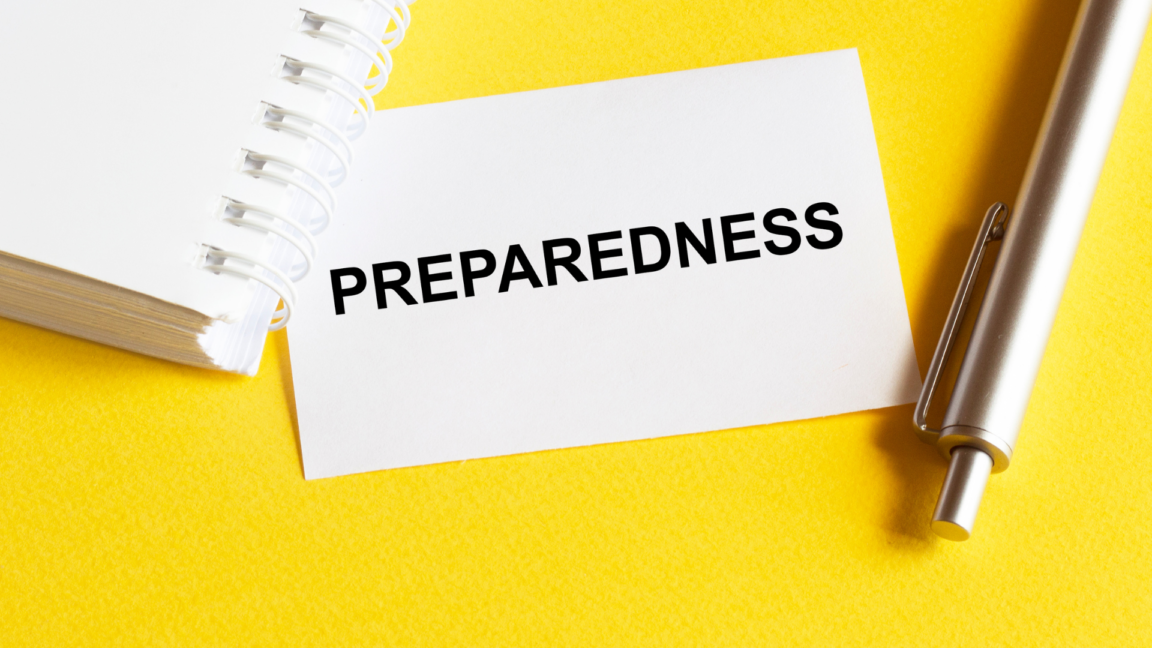
For salaried individuals or those who have recently started working with limited income, the prospect of buying both assets simultaneously requires careful consideration. It's essential to assess which purchase takes priority based on individual needs and circumstances.
As there are no strict guidelines to determine whether one should buy a house or a car first at a specific age, the decision varies depending on each person's readiness. Let's explore further to see whether buying a home or a car is more suitable for each individual.
Why should you buy a house first?

If you plan to start a family
When young professionals enter the workforce or have been working for a while, many begin envisioning their future and desire to establish their own families. This often involves moving out of their parents' homes and aspiring to have a place of their own. Some may contemplate whether buying a home first is a practical choice, allowing them to make payments while they work on building their family. When the time comes, they could be ready to handle mortgage payments, ensuring that the burden of debt isn't overwhelming when the family arrives.
If you are a City-Dweller
For individuals residing in major cities like Bangkok, where public transportation is well-established and efficient, buying a home might take precedence. With extensive coverage of buses and trains within and beyond the city, there are no concerns about transportation. Whether commuting within the city or traveling to other provinces, public transit offers a convenient and accessible option. So, considering these advantages, purchasing a home first could be a favorable decision for city-dwellers.
If you have verified your financial preparedness
However, for those who prioritize owning a home, it is essential to ensure having sufficient savings to proceed with applying for a mortgage. The expenses involved can be considerable, encompassing various costs such as reservation fees, contract fees, down payments, and numerous other fees from the initial booking to the move-in day. Even after moving in, there are additional expenses for interior decoration and maintenance that add up significantly over time.
Apart from the lump sum required for contract-related expenses, there are monthly costs associated with mortgage repayments. These payments must meet the minimum requirements, but it is advisable to have extra funds to expedite the repayment process and reduce the duration of the debt. Owning a home involves long-term financial commitment and responsibility, and careful financial planning is crucial to ensure a smooth and manageable homeownership journey.
Why should you buy a car first?

If you aren't planning on moving
Some individuals may not currently consider family planning or have no intention of starting a family, and they may prefer to continue living with their parents. In such cases, buying a home might not be necessary. However, if the desire to start a family or provide a new home for their parents arises in the future, purchasing a home wouldn't be a problem, especially if they have a history of car ownership. Having a car can make obtaining a mortgage easier.
Moreover, for those residing far from the city or their workplace, requiring extensive and multiple commutes on public transportation, owning a car might become more necessary. It would save time and make the journey more convenient compared to relying solely on public transportation.
Parking Space
Many people overlook the importance of parking space and assume that once they have a car, they can figure out where to park later. However, in reality, it's essential to have designated parking before purchasing a car. The lack of proper parking arrangements can become a significant issue for homeowners, as it tends to create disorder and inconveniences. Unfortunately, this problem has become widespread due to a common mindset where individuals follow the same pattern without considering its implications. As a result, many experience frustration due to the lack of proper parking space, parking in others' designated areas, or even violating parking restrictions. Addressing the parking situation is crucial, especially for those planning to buy a car before a house.
Cheaper than buying a house
The lump sum required for a car down payment is generally smaller compared to buying a house, and it can be saved up in a relatively short time. However, owning a car comes with maintenance costs, fuel expenses, and other similar expenses similar to owning a house. These additional costs need to be budgeted for as well.
Car financing typically involves a shorter repayment period compared to a house, with a maximum of around 7 years. This is faster than paying off a house, which could take up to 10 years or more if there is no lump sum to reduce the loan or when only making minimum payments. To avoid long-term debt, opting for a shorter car financing term allows for a quicker route to saving up for a home down payment.
Preparing the Down Payment
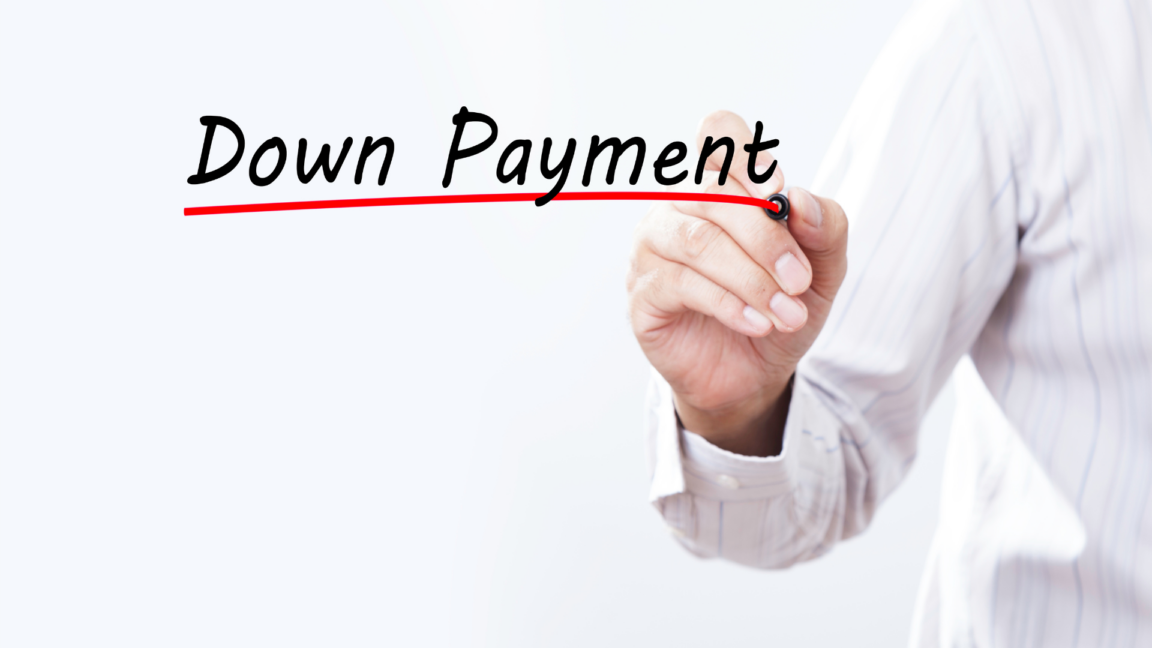
Whether buying a house or a car and seeking a loan from the bank, it is necessary to prepare a significant down payment. Generally, when applying for a home loan, one needs to have approximately 20% of the house's price as a down payment, while for a car loan, around 25% of the car's price is required. Therefore, before making a decision about taking on substantial debt, one must assess their readiness in terms of the down payment funds.
Example
For a house priced at 3,000,000 Baht, it is advisable to have a down payment of approximately 600,000 Baht. Let's assume the plan is to buy the house in the next 2 years, and there won't be any significant windfall gains or lottery winnings. In that case, one would need to save around 25,000 Baht per month.
However, if the monthly savings target is too high and beyond one's capability to save, the goal of applying for a loan might need to be pushed further. For instance, the plan could be adjusted to apply for the home loan in 3 years instead of 2 years, allowing more time for the down payment to accumulate. Alternatively, one could consider looking for a cheaper home option, such as purchasing a smaller house with a reduced price, say, 2.2 million Baht, to ensure that the monthly savings target remains within a manageable range without feeling overly burdened.
Read More:
Calculating Affordability for Repayment
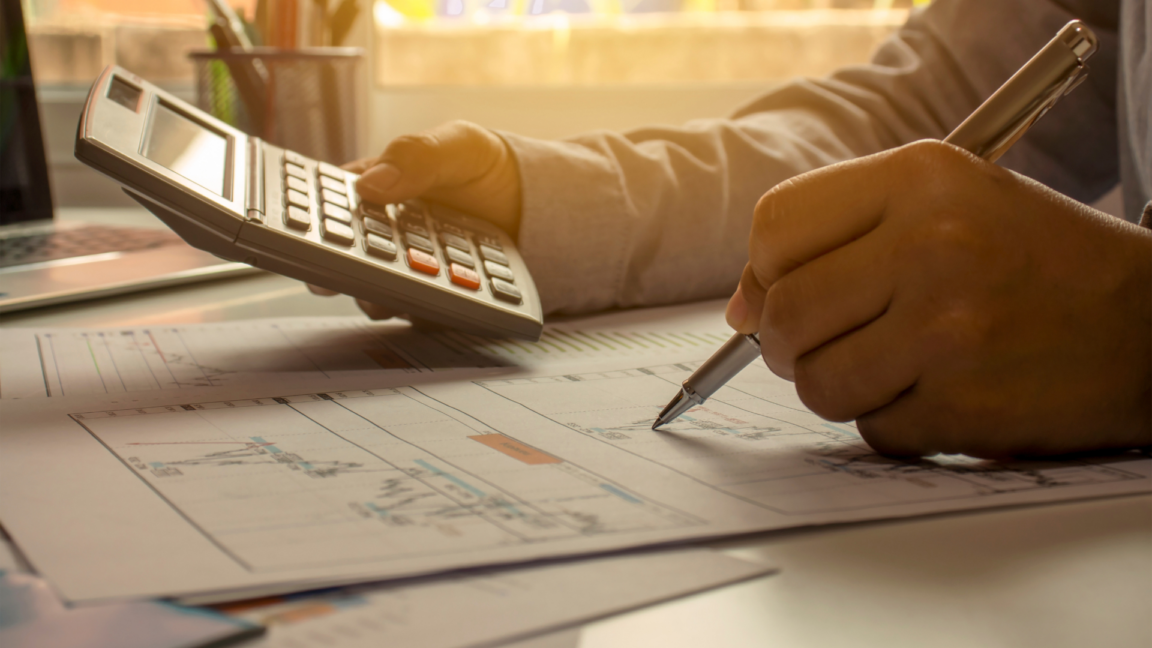
After making the decision to buy a house or a car and preparing the down payment, another crucial aspect to consider is the ability to make repayments. This will help determine how much one can afford to spend on the purchase.
Generally, when applying for a loan from a bank or financial institution, the monthly debt burden should not exceed 40-60% of the income. The debt-to-income ratio allowed depends on the monthly income; the higher the income, the higher the allowable debt-to-income ratio. However, it is advisable to keep the monthly debt burden at no more than 30% of the income for the best financial outcome. If the debt-to-income ratio is too high, there is a greater risk of facing financial issues in the future.
Example
Let's say you decide to buy a house first. If your monthly income of 30,000 Baht and a bank's requirement of a debt-to-income ratio not exceeding 40%, the total monthly debt burden should be 40% x 30,000 = 12,000 Baht.
Choosing a repayment period of approximately 20 years, one can request a loan amount of around 1.3 million Baht from the bank. However, if the decision is to buy a car first, with a car price of approximately 600,000 Baht and a 5-year repayment plan, the monthly installments will be around 11,000-12,000 Baht.
Closing Comments
After carefully considering both options and finding that neither meets the necessary criteria or appears suitable, it becomes crucial to reconsider and thoroughly evaluate the decision. The first step is to assess the actual need for these purchases at this particular time. While purchasing a house involves higher and more extensive expenses, from the initial reservation to ownership and occupancy, it also offers the potential for long-term returns, especially when considering factors like location and monitoring the real estate market.
On the other hand, cars generally depreciate over time, yet they offer the undeniable convenience of transportation. Before finalizing the decision to buy either property or a car, it is essential to prioritize the necessity and carefully evaluate personal readiness. The commitment to such significant purchases means committing to debt repayment over several years, making it crucial to ensure that the down payment is sufficient, and the monthly installments are manageable. By adopting this approach, it becomes possible to prevent potential financial difficulties in the future.
Looking for an ideal oasis to call home? Looking for a property for residential or investment purposes? Get in touch with us or click the links below!
FAQs
Lorem ipsum dolor sit amet, consectetur adipiscing elit. Suspendisse varius enim in eros elementum tristique.
Explore More Topics
Free real estate resources and tips on how to capitalise
